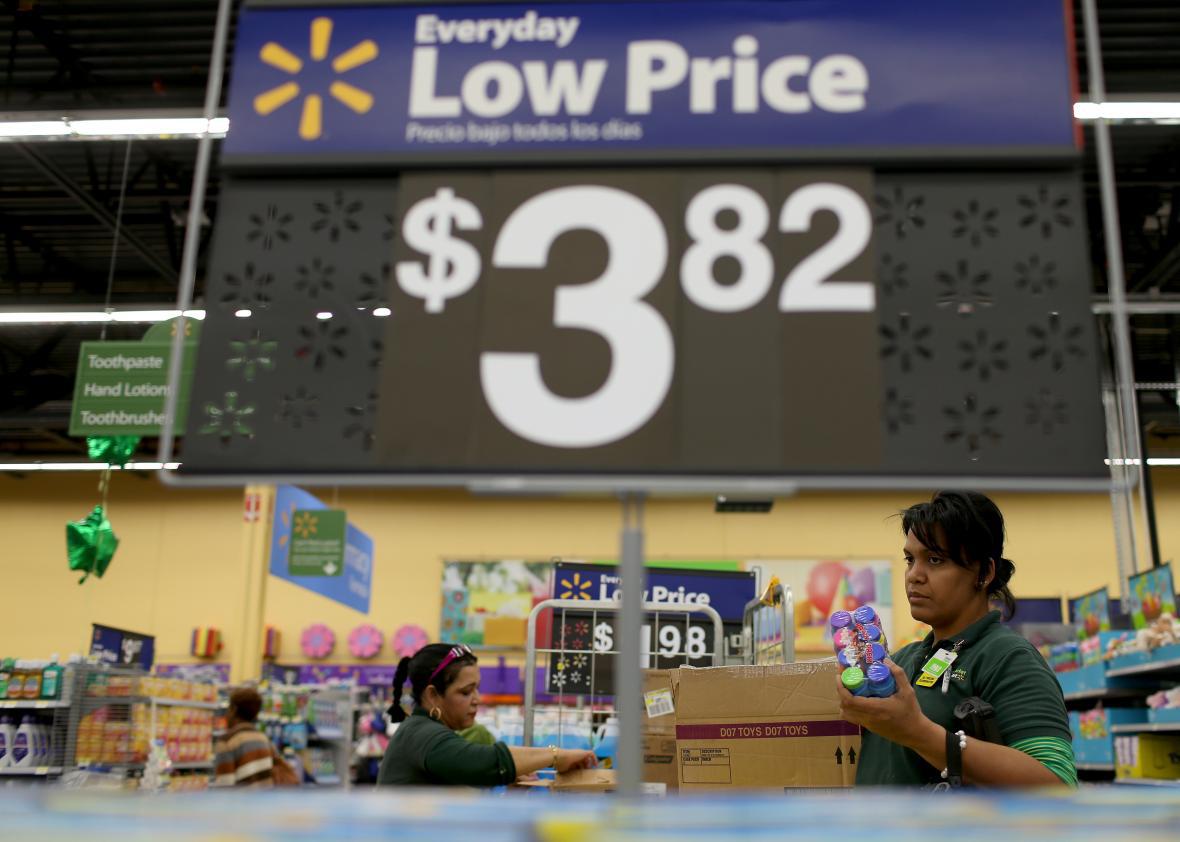America’s biggest big box store is moving into the little box business.
Walmart announced this week that its ShippingPass program, which promises two-day, no-fee, no-minimum deliveries of Walmart products for an annual subscription cost of $49, would offer a free, 30-day trial to new users.
It’s the company’s latest attempt to make headway in digital sales and home delivery, where it has struggled mightily.
True to brand, ShippingPass is a discount rival to Amazon Prime. When it was rolled out last summer, Walmart’s service offered subscribers in certain areas three-day delivery. In May, the delivery window shrank to two days, matching Amazon Prime, and virtually all addresses in the continental U.S. are now covered.
In addition to free shipping and two-day delivery, Amazon Prime offers video and music streaming—as well as free same-day delivery in some markets. At $99 per year, though, it’s also twice the price of ShippingPass.
It’s safe to say no one would want to pay for both services. Will $4 a month be a sufficient price differential to lure away some of the tens of millions of Amazon Prime members? It better be.
As Phil Wahba has written for Fortune, Walmart’s e-commerce business has floundered. In an effort to improve its lot, the big box giant announced the merger of its Arkansas and Silicon Valley tech teams earlier this year. The stats are dismal: Over the past two years, Walmart’s digital growth has been on a steady downward trajectory, from 20 percent growth rates in 2014 down to 10 percent, 8 percent, and 7 percent in the past three quarters.
That’s way out of step with the rest of the retail sector. Target’s digital sales rose 23 percent in the first quarter of 2016. U.S. retail sales grew 2.2 percent between the first quarters of 2015 and 2016, but e-commerce growth was at 15.2 percent during the same period, according to the Census Bureau—more than twice Walmart’s own performance.
The new ShippingPass push is one in a series of recent efforts to get people to shop at Walmart.com. In April, the company expanded its curbside grocery pickup program to 30 cities. Earlier this month, the company announced a grocery delivery joint venture with Uber, Lyft, and Deliv.
If Walmart has one advantage over Amazon, it’s that it already has a physical footprint and transportation infrastructure in and around big U.S. population centers. In that department, Amazon is playing catch-up. That network, Walmart says, is the asset that makes its fast and affordable shipping program possible.
Possible, sure. In demand? We’ll see.
